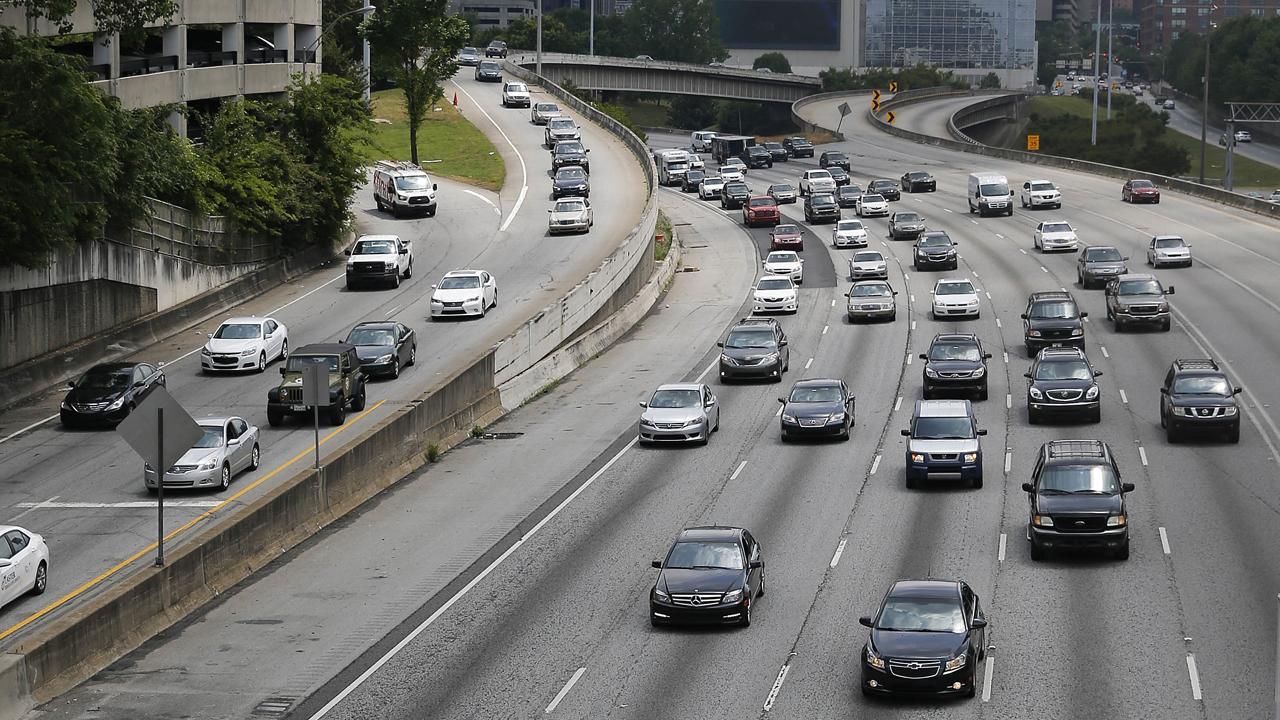Don’t want to buy a car? Rent your neighbor’s
Forget about hailing a cab, renting a vehicle from a traditional car rental company or even ordering an Uber.
The peer-to-peer (P2P) car sharing industry is not only looking to change the way we think about vehicle ownership, but also how we travel.
P2P car sharing is the process in which someone rents his or her vehicle to another person, usually mediated through an online marketplace. It’s part of what is called the sharing economy where owners rent out something they aren’t using, like a car or a house; think of P2P vehicle sharing like Airbnb, but for cars.
"It's the future," Sam Zaid, CEO and founder of Getaround, said. "Think about how we use cars. We waste about 6 billion car hours every day by parking cars for 22 or 23 hours in the day. They otherwise could be serving a function, which is to get people from one place to another. More people will move to a world where cars are predominantly shared with less private and individual use."
Susannah Bard began P2P car sharing about two years ago. Bard said she enjoys the freedom it gives her.
“I own a car with my boyfriend,” she said. “Getaround allows us to essentially have a second car, but not pay a lease fee on it every month. We can use it when we need it and give it back when we don’t need it.”
P2P car sharing companies like Turo and Getaround are upending the car rental business. Unlike traditional car rental companies, they don’t have a fleet, instead relying on private individuals renting out their vehicles.
The P2P car sharing company provides the platform and in turn, they receive a certain percentage of the car owner’s rental earnings. Owners are required to maintain their own vehicles. Drivers and car owners are screened for safety.
There are perks for consumers, like skipping the car rental counter and avoiding paperwork. In some cases, users can pick up the car or get it delivered where they want it by booking and unlocking the car from their phone.
“It’s pretty revolutionary these days that you can walk up to a vehicle, unlock it with your phone and start driving within minutes,” Bard said. “I think that is going to change car ownership in the long run and for the better.”
From fuel-efficient cars to high-end vehicles, P2P providers boast of a broad inventory. The companies also cite pricing and convenience as the top reasons people use the service.
“Compare this to renting a car with a rental car agency,” says Michelle Peacock, vice president and head of government relations for Turo. “You are offered a choice of compact, midsize or full-size, and you don’t actually know what car you are going to get until you show up that day. With Turo, you know exactly what car you are booking at that time. In addition, the value consumers have with Turo is tremendous. On average, the prices are about 25 percent less than a traditional rental car."
"You can find cars in your neighborhood, on your block, a tenth of a mile within walking distance," Zaid added. "We have lots of cars all around people. That's a big difference with car rentals. "
What also sets P2P car-sharing companies apart from traditional car rental companies is that Turo, Getaround and Maven (which is General Motors' shared vehicle platform) provide car owners $1,000,000 in liability insurance. Turo also offers three tiers of additional insurance coverage for travelers.
Scott Holeman, director of media relations at the Insurance Information Institute warns owners and renters that they could face coverage gaps. Before renting out your car or renting a car, he urges P2P car-sharing users to check their personal auto policies to see what is and isn't covered.
Approximately three years ago, Magdiel Adames began renting his car, a BMW, through Turo. Now he has six vehicles on the platform. Adames said he's lost count of how many times his cars have been in accidents.
"Maybe I had about fifteen incidents," he said. "Two were major. I had to get the car fixed completely where the damage was over $5,000. One was a complete total of the car, with no serious injuries."
Adames said he followed Turo's procedures and policies and all of the damages were covered. His advice for consumers is to research insurance coverage options before booking or listing a vehicle.

As P2P car-sharing providers tout their benefits to consumers, the organization representing the car renting industry is telling the upstarts to pump the breaks.
In a statement, Sharon Faulkner, executive director of the American Car Rental Association (ACRA), said it doesn’t make sense for only one section of the industry to benefit from legal loopholes and special carve-outs. Whether the rental is an hour, a day, a week or longer, she said that P2P providers should be subject to laws governing car rental transactions, safety recalls, taxes and fees, plus consumer protections addressing disclosures and sale of ancillary products.
Arizona, Florida, Texas, and Ohio are among the states with bills pending on how P2P car-sharing companies are taxed, according to TaxFoundation.org.
Turo and Getaround maintain that they are a platform that connects people renting cars, not a car rental company.
"Car rental companies have turned to legislation as a competitive tactic," Zaid said. "Most of them are trying to pass what we call same-as bills. Which is to say, what Getaround does is the same as what Enterprise does, so they should be regulated the same way. The reality is we are not the same. We are very different models."
Zaid said he will continue to have open discussions with legislators and work toward a resolution.
As legislative battles continue in the U.S., the P2P industry is establishing its reach outside of the country. Turo is available in 56 countries. Last year, it launched in the United Kingdom. Meantime, Getaround’s expansion plans went into overdrive this year when they acquired Drivy, the largest and fastest –growing car-sharing platform in Europe.
P2P car-sharing has been expanding in Europe and around the globe. Experts say there are several reasons for the growth in popularity. Ride-sharing is viewed as better for the environment. There's less pollution with fewer cars on the road. There's also a shift with how millennials view owning cars. Younger people aren't as attracted to car ownership as previous generations. Many consumers are also drawn to the revenue benefits from renting their vehicles.
Kenneth Yambo rents his Hyundai Sonata and Mazda CX-5 with Getaround. He has been using the P2P car-sharing service for approximately a year. In the middle of the summer, he earned $2,000 month renting his vehicles, he said.
“It’s the best of both worlds,” he said. “You are earning a little bit of cash flow, and you still have an asset afterward. Especially if you have a car that's sitting around and you're not using it. It's a no brainer."
Adames, the car owner who rents his six vehicles with Turo said P2P car sharing has enriched his life.
"Every car with the insurance is getting paid through Turo," he said. "On top of that, it's allowed me to generate roughly $1,000 to $3,000 more, which has allowed me to take extra trips and pay off most of my mortgage."
Peacock said P2P car sharing is changing the economics of car ownership.
CLICK HERE TO GET THE FOX BUSINESS APP
“At a time when there are millions of Americans who are three months or more behind on their car payment, this gives those people the ability to share their car if it’s not being used and earn the money back to cover the expense of owning a car,” she said. "About 60 percent of host car owners use Turo to pay down their car loan. About 53 percent use Turo to pay helpful bills or add to savings. This is critical - 27 percent report that they use Turo to earn money to pay off student loans or credit card debt. What we are really seeing, beyond just covering a car payment is turning a car into an income-earning engine for American families.”
Linda Bell joined FOX Business Network (FBN) in 2014 as an assignment editor. She is an award-winning writer of business and financial content. You can follow her on Twitter @lindanbell




















